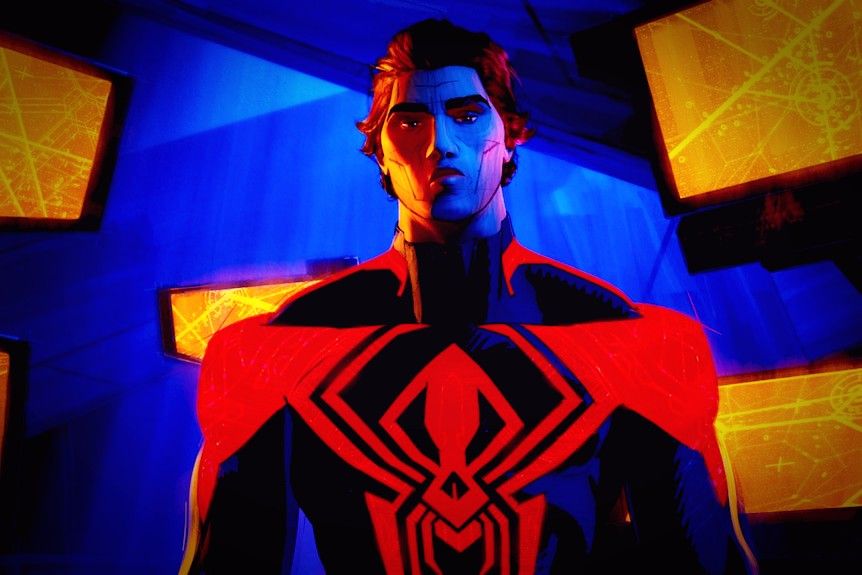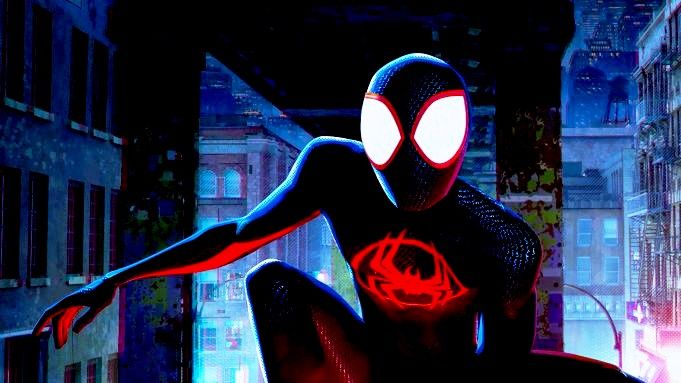In Spider-Man: Across the Spider-Verse, Miguel O’Hara doesn’t just lead the Spider-Society, a coalition of Spider-Men and Spider-Women. He protects the multiverse by making sure every Spider-Person goes through certain “canon events.” These are specific, tragic moments where a loved one dies, an experience that’s supposed to make Spider-Man a better hero and stabilize his respective universe. According to Miguel, if those events fail to happen, entire worlds could fall apart.
But is this really a hard rule of the multiverse, or is Miguel just letting his own trauma shape how he sees things? And does Spider-Man really need to suffer to be a hero? The movie spends a lot of time exploring these questions, showing both sides before letting Miles Morales (and us) make up our minds.
Why Miguel Believes in Canon Events

Miguel’s theory isn’t random. He once tried to take the place of a deceased version of himself in an alternate universe. That universe ended up collapsing, and he blames himself for breaking its canon events. To Miguel, breaking canon is a recipe for disaster.
The Spider-Society mostly agrees with him, feeling that their losses are part of some grand plan. They treat canon events almost like sacred rules, and will travel to different universes to stop anything that might prevent them from happening.
When Miles saves Inspector Singh during the Mumbattan sequence, we see reality itself destabilize: buildings collapse, voids open in the sky, and chaos ripples through the city. To Miguel, Miles blocked India’s Spider-Man, Pavitr Prabhakar, from experiencing his canon events and soon his universe will pay the price.
He sees a pattern: every Spider-Person loses someone important. Uncle Ben, Captain Stacy, Aaron Davis; it’s always someone. He thinks these losses are what hold the multiverse together.
The Cracks in the Theory
But as the movie goes on, we see that Miguel’s theory isn’t perfect.
For one, not every Spider-Person loses the same person. Sometimes it’s a police captain, sometimes a friend, sometimes someone else entirely. The “canon” starts looking more like a loose guideline than a strict rule. There’s also Earth-42, which doesn’t have a Spider-Man at all and it hasn’t been destroyed.
Even in the Spider-Society, there are exceptions. Peter B. Parker is married to MJ and has a daughter, which should break canon, but his world is fine.
And most damning of all? Gwen Stacy’s dad resigns being a police captain, dodging his own canon event. Her universe is still intact.
The movie doesn’t just question Miguel’s logic; it shows that his warnings might come more from fear than fact. When Miles and Gwen push back, Miguel can’t really explain himself. He just asks, “Do you want to find out?” He’s based his entire operation on anxiety and desperation, not cold, hard facts.
Miguel’s Trauma and Control
At its core, Miguel’s obsession with canon events seems more like a way to cope with his own guilt. He lost a universe by trying to fill a hole in his life, and now he clings to the idea that his pain is the result of something cruel and inevitable. If that’s not the case, then maybe his universe could have been saved. And that’s hard for him to accept, knowing he damned an entire universe and couldn’t do anything to save it.
Miguel isn’t lying, but he’s trapped by his own trauma, trying to control the multiverse so he doesn’t have to face his guilt.
Does Spider-Man Have to Suffer?
Miles Morales challenges the whole idea that Spider-Man must go through tragedy to be a hero. The moment he hears about canon events, he refuses to accept that someone he loves has to die just to keep the universe together. When Miles learns that his father Jefferson Davis is going to die, he’s determined to prevent that from happening.
Across the Spider-Verse challenges the decades old notion that Spider-Man needs to be defined by tragedy. The courage to do what’s right, even when it’s terrifying. The compassion to save others, even when it seems impossible. The resilience to keep going, even when the odds are stacked against you.
The film doesn’t doesn’t fully dismiss Miguel’s perspective. The film shows real consequences when canon events are disrupted and it acknowledges the unpredictability of multiversal instability.
But it also encourages characters and us to question whether suffering is truly necessary for heroism. So, while Miguel might be partly right, Across the Spider-Verse argues that the multiverse isn’t held together by tragedy. It’s held together by the choices we make.






